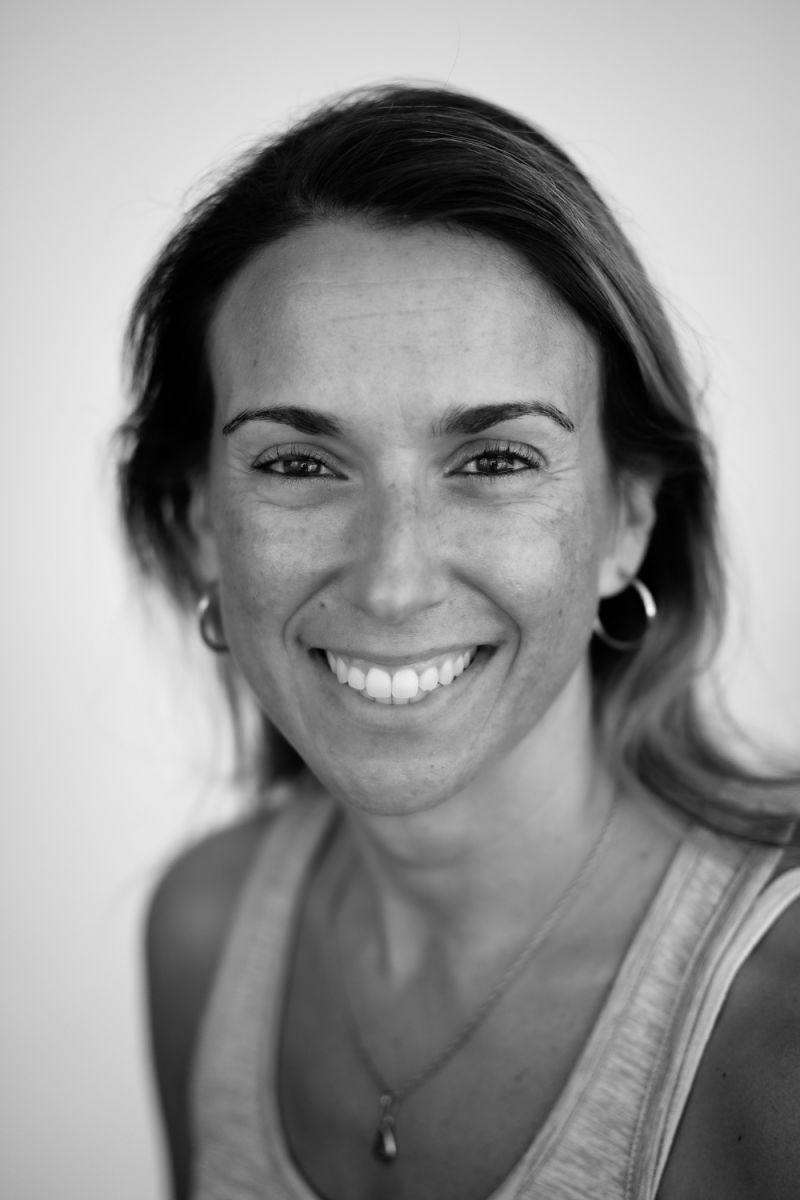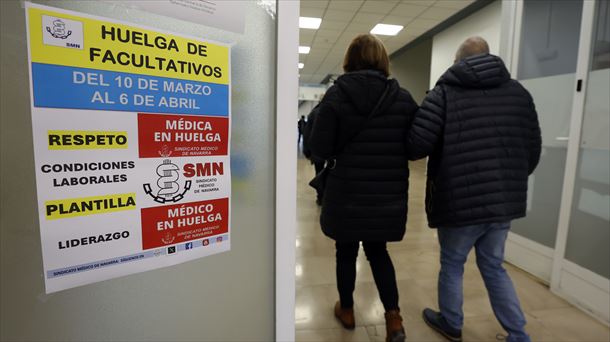“The system has invested very little in the well-being of women”
- Iraia Lekue (Bilbao, 1981) is an expert physiotherapist in obstetrics and pelvic floor. Defending that the maternal experience begins to recover physically, the woman is dedicated to helping in pregnancy and childbirth. Since 1999 he has resided in Barcelona.

When and how did he begin to immerse himself in knowledge of the pelvic floor?
I studied physiotherapy in 2002. At that time there were no pelvic floor courses. A friend Erasmusa made with me in France told me that, after delivery, all the women went to the physiotherapist to rehabilitate the pelvic floor. Subsequently, a training was organized in Barcelona, with the help of two French physiotherapists, in which he and I participated. So I fell in love with the pelvic floor and since then I have not stopped. A year later, I took the postgraduate course and whenever I can continue studying.
Why is physiotherapy important in solving pelvic floor problems?
Because we value abdominal muscles after delivery and pelvic floor health. This allows us to diagnose dysfunctions and from there we propose treatment through physical exercise and consultation sessions.
If I am not mistaken, four out of ten women have problems with incontinence after childbirth and most do not know the causes and consequences.
We live in a society that has normalized urine loss after delivery. It's a typical female dysfunction in half, but in no case is it normal. Fortunately, there is more and more information and women are more interested in their well-being, without giving up completely completing it.
To what extent is tobacco still related to the pelvic floor?
The system has invested very little in the well-being of women and despite problems related to the pelvic floor has not been interested in solving them. Many women have been silenced for decades, but fortunately today we live an empowerment; the awareness of our health has increased and women demand more protection and more resources.

What do you think is the main pelvic floor shortage?Public health
does not guarantee treatments related to pelvic floor and the woman pays for her pocket. In the same way, the taboo continues to prevail today to correct these kinds of problems. Finally, there are people who don’t even know that there is a pelvic floor specialty: most of our patients are recommended…
To what extent has the situation improved?
Lately the importance of women's well-being has been gaining ground, there is more information on the muscular status and health of the pelvic floor. It is clear that there is still a long way to go, but I am optimistic and I think there is increasing awareness.
How does public health assess the follow-up of pregnancy, childbirth and the puerperium?
It seems to me that there is proper follow-up during pregnancy. Excess of intervention in hospital births. This also places the right of women to decide in the background. But I believe that the main lack of public health is that of half: lack of support and resources to adequately deal with the usual problems at that time.
What causes this vacuum?
After delivery, the woman undergoes significant physical, hormonal and metabolic change. Feeling protected in this process is fundamental in general and also in the pelvic floor. Unfortunately, since public health does not follow the pelvic floor, many women have to go to private professionals and, as always, women with fewer resources, cannot live with this dysfunction that will become complicated over time.
What are the usual problems you observe in the consultation?It is
known that in Spain there is over-intervention in deliveries through episiotomies and cesarean sections. These spots weaken and modify the functionality of the musculature. Therefore, I work every day with women who feel burning pain, itching, incontinence and sexual intercourse.
Some believe that cesarean delivery does not affect the pelvic floor. Is that the case?
Although people think otherwise, cesarean delivery does not relieve the continuity of the pelvic floor. The lower abdominal scar caused by cesarean section frequently causes internal adhesions. This affects not only the abdominal muscles but also the pelvic floor. On the other hand, many women experience increased pelvic floor tension due to nervous system reaction. Moreover, among cesarean sections, many are urgent, after the delivery of the woman. Therefore, the pelvic floor, in one way or another, also needs continuity in women who have given birth by cesarean section.
a half years ago I was a mother. Fortunately, things have been changing since then: at that time they began to promote growing groups for the protection of lactation and postpartum, there were few professionals monitoring the pelvic floor and the means of delivery were reduced in hospitals. Traumatic delivery was ours and postpartum was especially painful. I felt lonely and I'll need psychiatric medicine to complete it. I would say that working with women halfway today I am so pleased with the painful experience I had experienced. To some extent, I try not to have to live more women in the calvary that I suffer."
Osakidetzan egun, ez dago bermatuta euskarazko zerbitzua. Zerbitzu gehienetan ez dago hizkuntza irizpiderik eta herritar euskaldunek bere burua nabarmendu beharra daukate, egoera oso zaurgarrian, euskarazko zerbitzua jaso ahal izateko.
Pazienteek Donostiara joan behar dute arreta jasotzeko. Osasun Bidasoa plataforma herritarrak salatu du itxierak “are gehiago hondatuko” duela eskualdeko osasun publikoa.
EAEn BAMEa (famili medikuen formazioa) lau urtetik hiru urtetara jaistea eskatu du Jaurlaritzak. Osakidetzaren "larritasunaren" erantzukizuna Ministerioari bota dio Jaurlaritzako Osasun sailburu Alberto Martinezek: "Ez digute egiten uzten, eta haiek ez dute ezer... [+]
Sare sozialen kontra hitz egitea ondo dago, beno, nire inguruan ondo ikusia bezala dago sare sozialek dakartzaten kalteez eta txarkeriez aritzea; progre gelditzen da bat horrela jardunda, baina gaur alde hitz egin nahi dut. Ez ni optimista digitala nauzuelako, baizik eta sare... [+]
Berrogei urte dira Euskal Herrian autismoaren inguruko lehen azterketak eta zerbitzuak hasi zirela. Urte hauetan asko aldatu da autismoaz dakiguna. Uste baino heterogeneoagoa da. Uste baino ohikoagoa. Normalagoa.
Itxaron zerrendak gutxitzeko Osasunbideak hartutako estrategiak gaitzetsi ditu Plataformak
Endometriosiaren Nazioarteko Eguna izan zen, martxoak 14a. AINTZANE CUADRA MARIGORTAri (Amurrio, 1995) gaixotasun hori diagnostikatu zioten urtarrilean, lehen sintomak duela lau urte nabaritzen hasi zen arren. Gaitz horri ikusgarritasuna ematearen beharraz mintzatu da.
La bajona kolektibo kide Heiko Elbirak salatu du psikiatriak zisheteroarautik aldentzen diren erotikak kontrolatu nahi dituela.
Barakaldoko ospitaleko larrialdi zerbitzuan sufritzen ari diren "saturazioa larria" dela ohartarazi du sindikatuak. Pazienteak korridoreetan artatu dituztela eta krisia kudeatzeko "behar adina langile" ez dagoela salatu du. Errealitate horren aurrean... [+]
Astelehenean abiatu da sindikatuak deitutako greba eta apirilaren 6 arte luzatuko da. Lan-gainkarga salatu eta baldintzak hobetzeko eskatu dute, baita mediku egoiliarrei karrera profesionala aitortzea ere.























